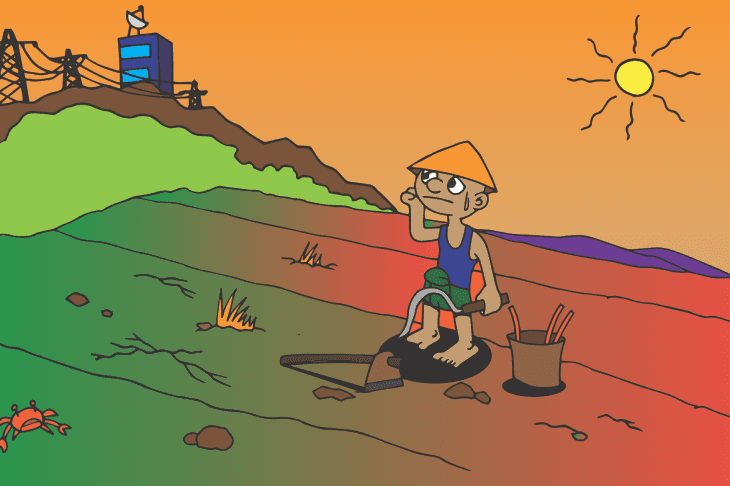5 Things to know before starting urban farming

There is a time (some sort of midlife crisis) when you become interested in eating healthier food. Maybe for your children as well. Or you want to join the move outside of the city trend and live countryside.
You did it and now you have a bit of land, not much, but enough to grow some tomatoes, salad and some herbs. Looks easy, after all you have grown some hot peppers in pots and maybe some balcony tomatoes, right?
Well, growing your own food for read, even if it’s urban farming in small plots of land it’s a different kind of beast. Here are the 5 things to know before starting urban farming.
1. Urban farming takes more effort than you think
If you think that you just plant tomatoes and take care of them over the weekends, you’re wrong! Planting tomatoes outside needs more attention than a few days a month.
You need to prepare the land: this could mean digging, taking our the rocks, maybe bringing in some quality soil.
Weather changes throughout the year: if you start tomatoes early in the year you might need to cover them from frost; during the summer you need to water daily.
Of course, you need to watch for any pests and diseases and control the issues, which might mean repeated applying of substances, dealing with pests, fertilizing and isolate problematic plants.
2. Urban farming doesn’t produce all year around
You might have heard from other urban farming buddies “I had just a few tomatoes plants and got 30 kilos of organic tomatoes – more than I could eat”. The more than I could eat thing is the key to understand how farming really works: tomatoes are ripen in a specific time of the year, maybe a month or two. This means that for the rest of the year you don’t have any tomatoes at all, and in the 2 months when you have them, they are too much.
This means you should probably find ways to preserve the extra tomatoes, which goes again to point 1 and secondly you need a variety of crops and plan ahead for each of them when is the best time to plant, maintain and harvest, which makes urban farming a year round activity – again goes to point 1.
3. There is no escape from urban farming (like in taking time off)
Think this way: urban farming is like having small children: you cant go away for 2 weeks in your usual holiday, somebody will have to take care of the plants.
You can’t have busy weeks when you just skip doing the farming chores; your plants will either die from the lack of attention, either produce less.
4. There is more to know than it appears when urban farming
You can’t plant this here. If you put this together with this, they will invade each other. You should plant this together with mint, to repel pests. Your tomatoes need more calcium, but your carrots don’t. You get the idea, once you get a little bit bigger than pots, your know-how need to grow.
5. Urban farming might cost you more than buying local organic produce
In theory you just need seeds and the rest is free? Think again: you need to work the land; you need to water, fertilize and control pests and diseases.
Some of your plants will die. You might have a bad year: a late frost, a dry season, maybe your lack of skills, time and attention.
If you’re not dedicated to make things work, urban farming might turn to a loss. Might be cheaper to buy organic from professional growers.
Solution?
Most of the things above are easier to handle with hydroponic systems. While they don’t solve everything, hydroponic systems have some advantages:
- easier to control the pests and diseases
- controlled environment: might be left unattended for some time
- with the right system you can produce year around
- easier to work, or at least less hard work
Leave a Reply